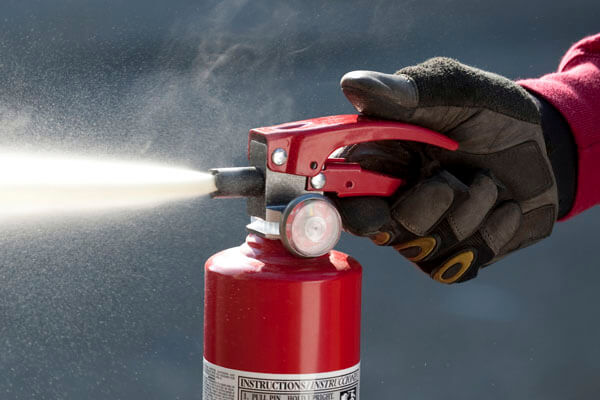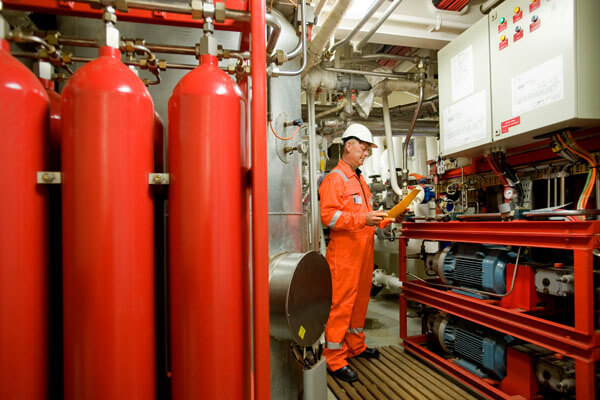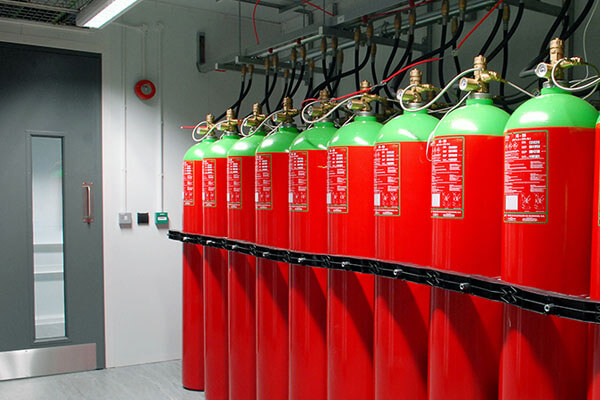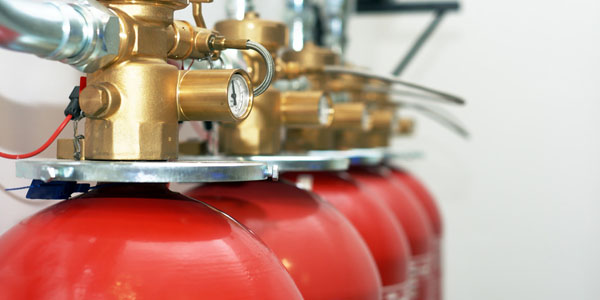INTRODUCTION:
Fire sprinkler systems are a vital component of modern fire safety infrastructure, providing an effective and reliable means of controlling and extinguishing fires in residential, commercial, and industrial settings. These systems have proven time and again to be indispensable, safeguarding lives, property, and businesses from the devastating consequences of fire.
How Fire Sprinkler Systems Work?
Fire sprinkler systems operate on a simple yet highly effective principle. They consist of a network of pipes installed throughout a building, with strategically placed sprinkler heads that are triggered when exposed to heat from a fire. Each sprinkler head is individually activated and discharges water directly onto the fire, controlling its spread and suppressing the flames until the fire department arrives.
Contrary to popular belief, fire sprinklers do not all activate simultaneously. Only the sprinkler heads closest to the fire are triggered, providing targeted water discharge where it is needed most. This not only minimizes water damage but also ensures rapid response and effective fire suppression, significantly increasing the chances of survival and reducing property loss.
Advantages of Fire Sprinkler Systems:
• Life Safety: Fire sprinkler systems are primarily designed to protect human life. Statistics consistently show that they are incredibly effective in reducing fire-related fatalities. According to the National Fire Protection Association (NFPA), when sprinkler systems are present, the risk of dying in a fire decreases by about 80%. The immediate response of fire sprinklers can control or even extinguish a fire before it grows out of control, providing valuable time for occupants to evacuate safely.
• Property Protection: Fire damage can result in significant financial losses for individuals and businesses. Fire sprinkler systems are highly efficient in minimizing property damage by swiftly containing and suppressing fires. They limit the spread of flames, heat, and smoke, reducing the extent of destruction and allowing for quicker restoration and recovery.
• Business Continuity: For businesses, fire incidents can disrupt operations, leading to revenue losses, customer dissatisfaction, and even closure. By installing fire sprinkler systems, businesses can ensure continuity, as these systems can suppress fires and limit damage, enabling operations to resume quickly. This helps protect jobs, maintain customer trust, and uphold the reputation of the organization.
Common Misconceptions About Fire Sprinkler Systems:
Despite the proven effectiveness of fire sprinkler systems, several misconceptions persist. It is important to dispel these myths to encourage wider adoption of this life-saving technology:
1) All sprinklers activate simultaneously: As mentioned earlier, fire sprinklers work individually and activate only when exposed to heat, typically at temperatures ranging from 135 to 165 degrees Fahrenheit. Only the sprinklers closest to the fire are triggered, limiting water discharge to the affected area.
2) Sprinklers cause extensive water damage: Thanks to their targeted activation, fire sprinklers release significantly less water than fire department hoses. The amount of water discharged is tailored to control or extinguish the fire, minimizing water damage to the building and its contents.
3) False activations are common: Fire sprinklers are designed with a heat-sensitive mechanism, ensuring they are not accidentally triggered by smoke, burnt toast, or other non-fire events. False activations are extremely rare, providing reliable and trustworthy fire protection.
Codes and Regulations:
Recognizing the importance of fire sprinkler systems, building codes and regulations have been updated to include their installation requirements. Depending on the jurisdiction and building type, certain buildings may be legally obligated to have fire sprinklers. It is crucial for building owners, contractors, and architects to be familiar with the specific regulations governing their area to ensure compliance and optimal fire safety.
CONCLUSION:
Fire sprinkler systems play an indispensable role in safeguarding lives and property from the devastating consequences of fires. With their quick response, targeted water discharge, and proven effectiveness, fire sprinklers significantly reduce fire-related fatalities, minimize property damage, ensure business continuity, and provide peace of mind. By dispelling common misconceptions and understanding their benefits, it is clear that fire sprinkler systems are a vital investment for any residential, commercial, or industrial setting seeking comprehensive fire protection.
DO YOU HAVE ANY QUESTIONS ABOUT?
Don’t wait to contact us now by sending an email to info@bio-genesis.it! Our experts are at your complete disposal to guide you in choosing the most suitable product for your fire-fighting needs.





